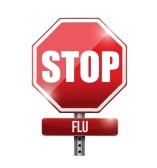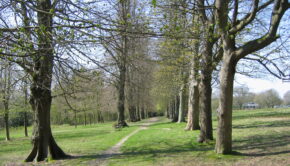Health – Immunisation against Seasonal Flu
Flu can spread quickly through droplets created when someone with the infection sneezes or coughs, or by touching a surface where the virus has been deposited. For otherwise healthy people, flu can be unpleasant but normally clears up within a week. But complications of flu can be serious and cause a number of deaths each year in the UK. For those at risk of developing serious complications from seasonal flu, vaccination is recommended and is available to them free of charge on the NHS; this includes anyone over 65, pregnant women and those with weakened immune systems or underlying health conditions, such as long-term respiratory disease or heart disease.
It is important to have the jab annually, ideally between September and November. Protection from the vaccine reduces over time and flu strains often change, so a new flu vaccine is produced each year. There are three types of flu virus – A, B and C, with most cases caused by types A and B. Each winter, mostly within a six to eight week period, a different strain of the flu virus causes an outbreak affecting many people and this is referred to as seasonal flu. The viruses most likely to cause seasonal flu are identified in advance each year by the World Health Organisation and then vaccines are made to match them as closely as possible.
Side effects of the vaccine are usually very minor, such as slight soreness at the injection site, a mildly raised temperature and aching muscles. The immunisation does not contain any living flu virus and so it cannot cause flu or any other infections. Should you develop a cough or a cold shortly after having a flu immunisation it is a coincidence; the vaccination will not prevent other viral infections which can cause coughs, colds and flu-like illnesses, only the particular flu virus that is expected in the coming winter.
The flu vaccine can save lives. If you are at risk, contact your GP to book your vaccination for winter 2013/2014.
Phoebe Hodge






Comments